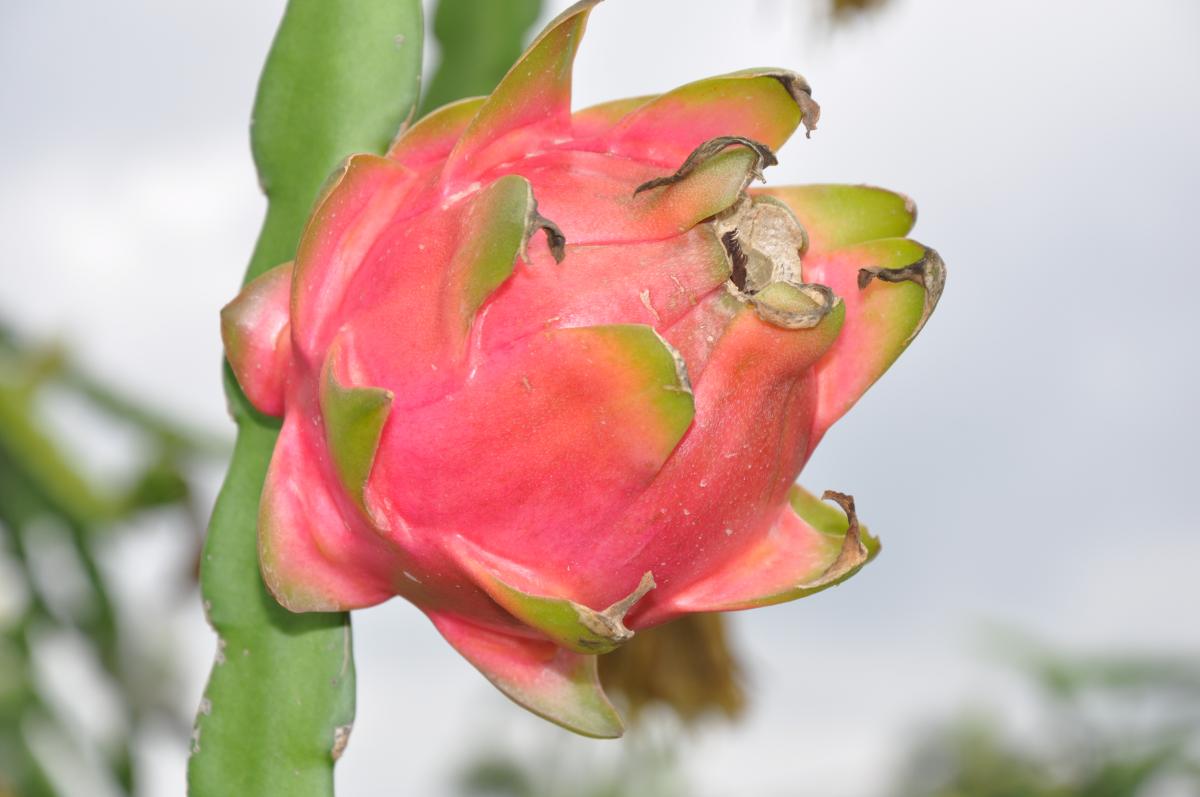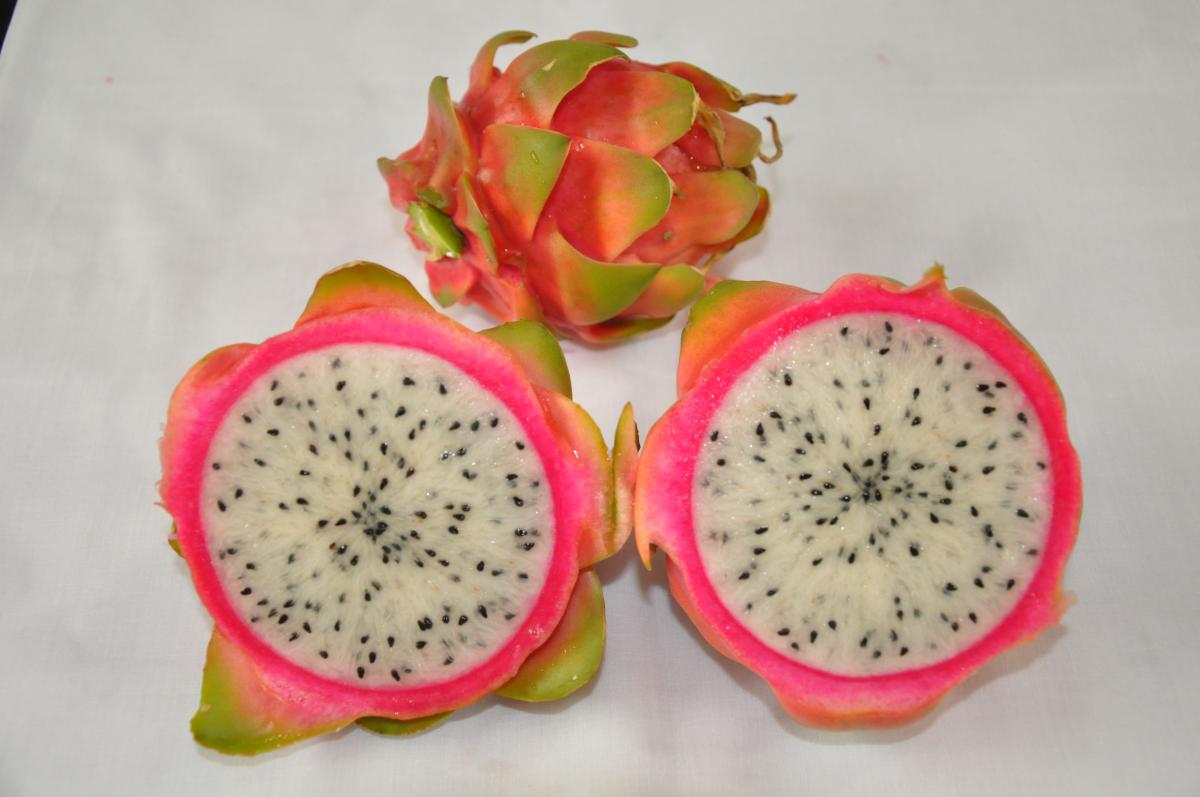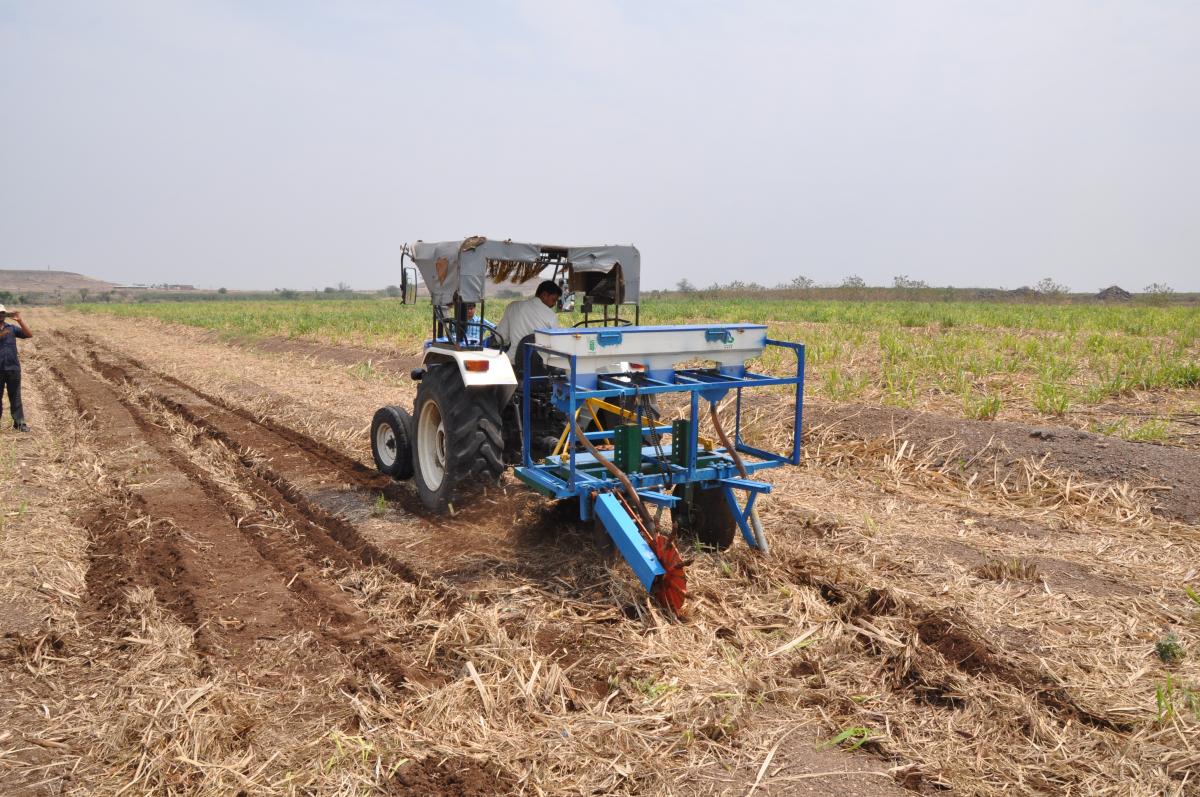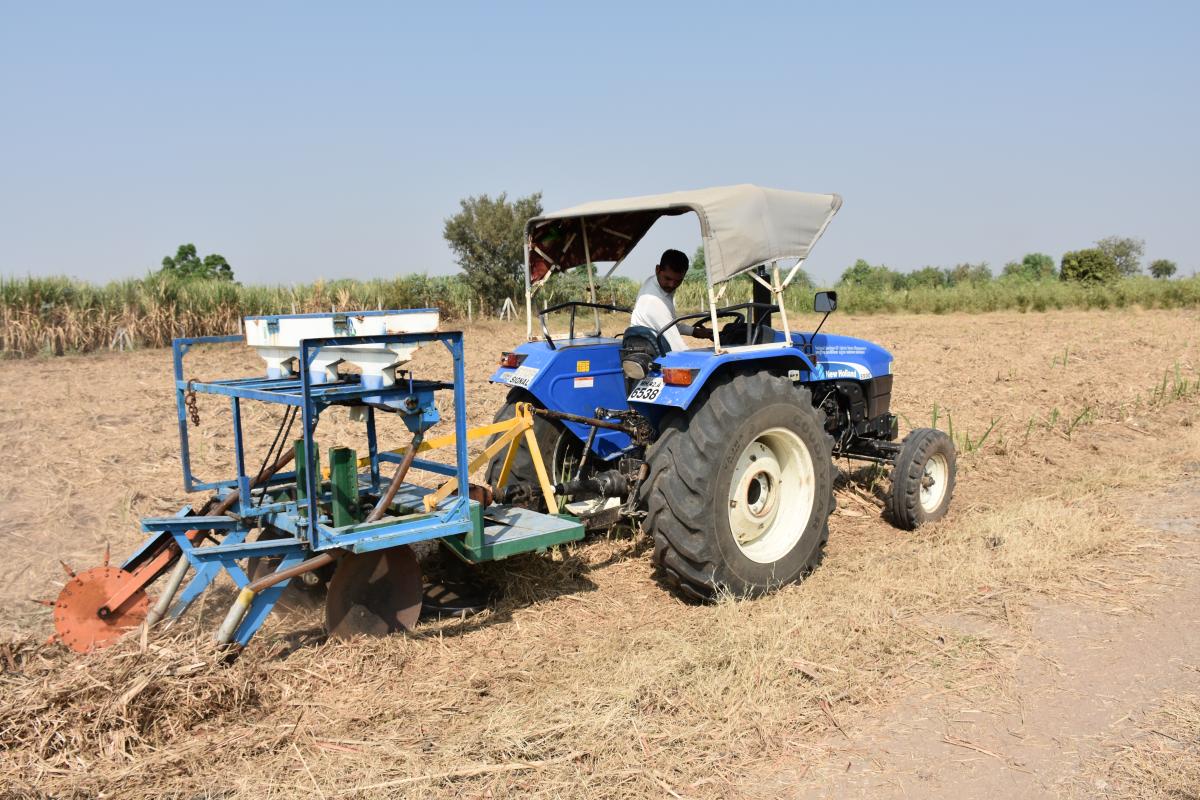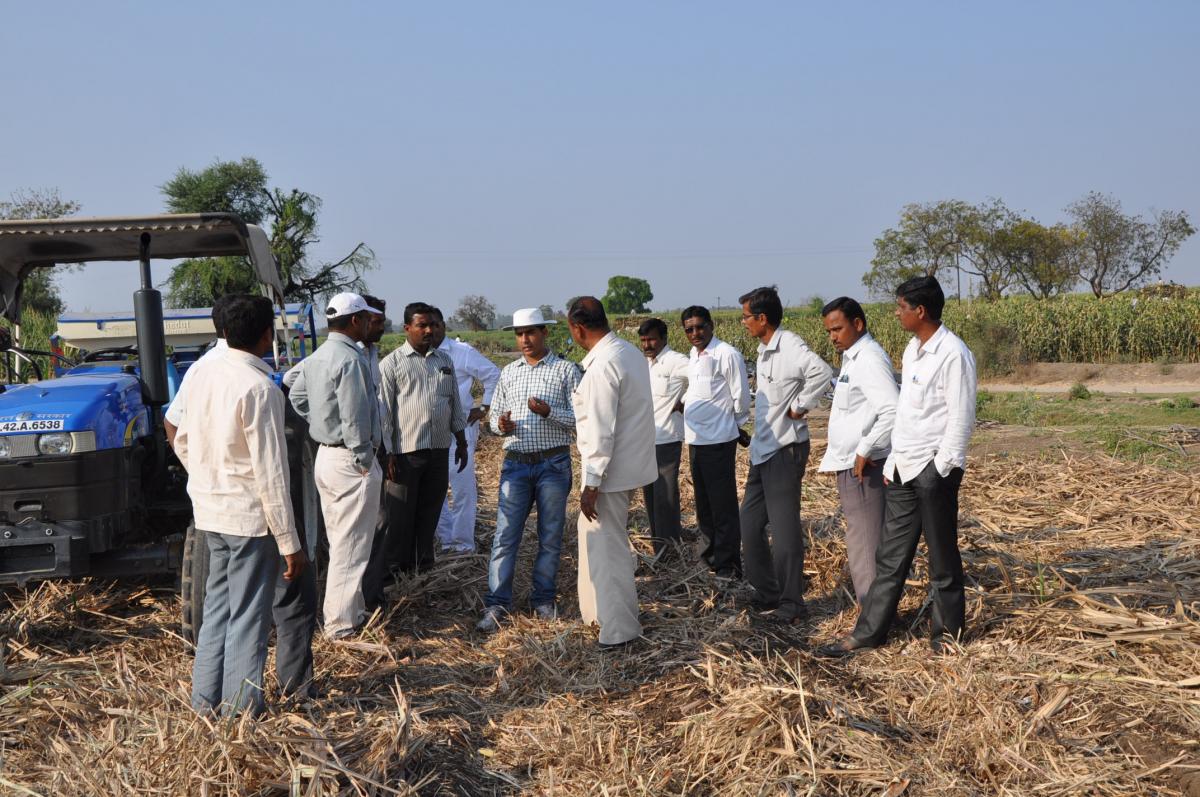Institute Technology Management Unit (ITMU)
Technology Management Unit (ITMU) has been established at ICAR-National Institute of Abiotic Stress Management (ICAR-NIASM) to facilitate the management of various technologies developed by the institute and Intellectual Property Right (IPR) related issues. Institute Technology Management Committee (ITMC) is the highest decision making body at the institute which oversee the activities of ITMU. The novel tools, technologies, products, varieties and practical methods developed by the institute are being registered at National Agencies and documented at ITMU. The management, transfer of technologies and its dissemination to the farming community is co-ordinated by the ITMU.
Objectives:
- To pursue all IP protection, maintenance and transfer / commercialization related matters at the institute level following ICAR guidelines and any other administrative or policy decisions taken in ICAR from time to time.
- To create awareness about IPRs.
- To facilitate commercialization of technologies.
- To accelerate technology development and utilization between IIPR and entrepreneurs for commercialization of agri technologies.
- To provide prior art search/ patent search to Staff of the Institute.
- To collect and document literatures related to agricultural technologies.
Intellectual Property Rights (IPRs):
- Intellectual property (IP) refers to novel inventions, literary and research works, symbols, names, images and designs.
- Intellectual property rights considered as reward/ recognition for creativity and skillful work in execution of ideas.
- They also entitle inventor to prevent others from using, dealing or tampering with inventor’s product without prior permission from inventor. Inventor can in fact legally use them to stop and compensate for any damages.
- The invention or technology developed by the scientists /staff of ICAR-NIASM can be protected through IPR's.
Types of IPR:
- Patent: A patent is a right granted to the owner of an invention that prevents others from making, using, importing or selling the invention without his permission.
|
S. No. |
Date of filling application IPR title(Provisional) |
Application number |
Developing Institute |
Title |
Innovators |
Status of application |
Date of grant |
|
1. |
09/11/2012 |
3255/MUM/2012 |
NIASM, Baramati, Pune |
Process for one step synthesis of bactericidal silver nano-particles from tissue extracts of Labeorohita |
B.Sarkar, UK Maurya, MP Brahmane, KK Krishnani and PS Minhas |
Granted |
2021 |
| 2. | 18/08/2015 | 3127/MUM/2015 | NIASM, Baramati, Pune | Development of a microbially derived polymeric product for gel formation, microbial colonization and metals binding |
Meena KK, Sorty A, Krishnani KK, Minhas PS |
Application published on 12 May, 2017 | Awaited |
| 3. | 14/09/2021 | 202121041218 | ICAR-NIASM, Baramati, Pune |
A process for the development of nanoscaled metallic formulations for aquaculture |
Neeraj Kumar, K K Krishnani, Himanshu Pathak |
Under Screening & Classification |
--- |
| 4. | 25/10/2021 | 202121048471 | ICAR-NIASM, Baramati, Pune | Novel Microstimulant and Stress Alleviator For Aquaculture |
Neeraj Kumar, K K Krishnani, Himanshu Pathak |
Application not yet published |
--- |
- Trademark : A trade mark is a sign that you can use to distinguish your business’ goods or services from those of other traders. A Trademark generally refers to a “brand” or “logo”. Trademark registration can also be obtained for a business name, distinctive catch phrases, taglines or captions.
|
S. N. |
Form |
Application No. |
Class |
Proprietor Code |
Filing Date |
Status |
|
1 |
TM-A |
3638061 |
44 |
2252657 |
19.09.2017 |
Registered |
|
2 |
TM-A |
3638062 |
31 |
2252657 |
19.09.2017 |
Registered |
- Copyright: Fundamentally, copyright is a law that gives you ownership over the things you create. Be it a painting, a photograph, a poem or a novel, if you created it, you own it and it’s the copyright law itself that assures that ownership. The ownership that copyright law grants comes with several rights that you, as the owner, have exclusively.
- Geographical Indication: A geographical indication is a distinctive sign used to identify a product as originating in the territory of a particular country, region or locality where its quality, reputation or other characteristic is linked to its geographical origin.
- Design: "Design" for SVID is a process of developing purposeful and innovative solutions that embody functional and aesthetic demands based on the needs of the intended user. Design is applied in the development of goods, services, processes messages and environments.
- Biological Strains/Material:
|
S. N. |
Application No. |
Biological Strain/Material |
Filing Date |
Status |
|
1 |
NCIM 5599 |
Microbial Strain produced |
20.04.2016 |
Registered |
|
2 |
NCIM 5600 |
Microbial Strain produced |
28.04.2017 |
Registered |
1. Dragon fruit: Future crop for degraded & water-scarce areas
Horticulture contributes 28 per cent of country’s agricultural GDP and surpassed the cereal production since 2012-13. Urban consumers are nutritionally aware and willing to try natural products for their ever increasing ailments, of course diabetes, cardio-vascular and other stress related diseases. Need to shift from the traditional orchards and diversify the fruit basket which meet the therapist demand of consumers & also suited to drought prone & degraded lands. Dragon fruit is lucrative plant with amazing health benefitting but has so far failed to draw much attention of growers in India.
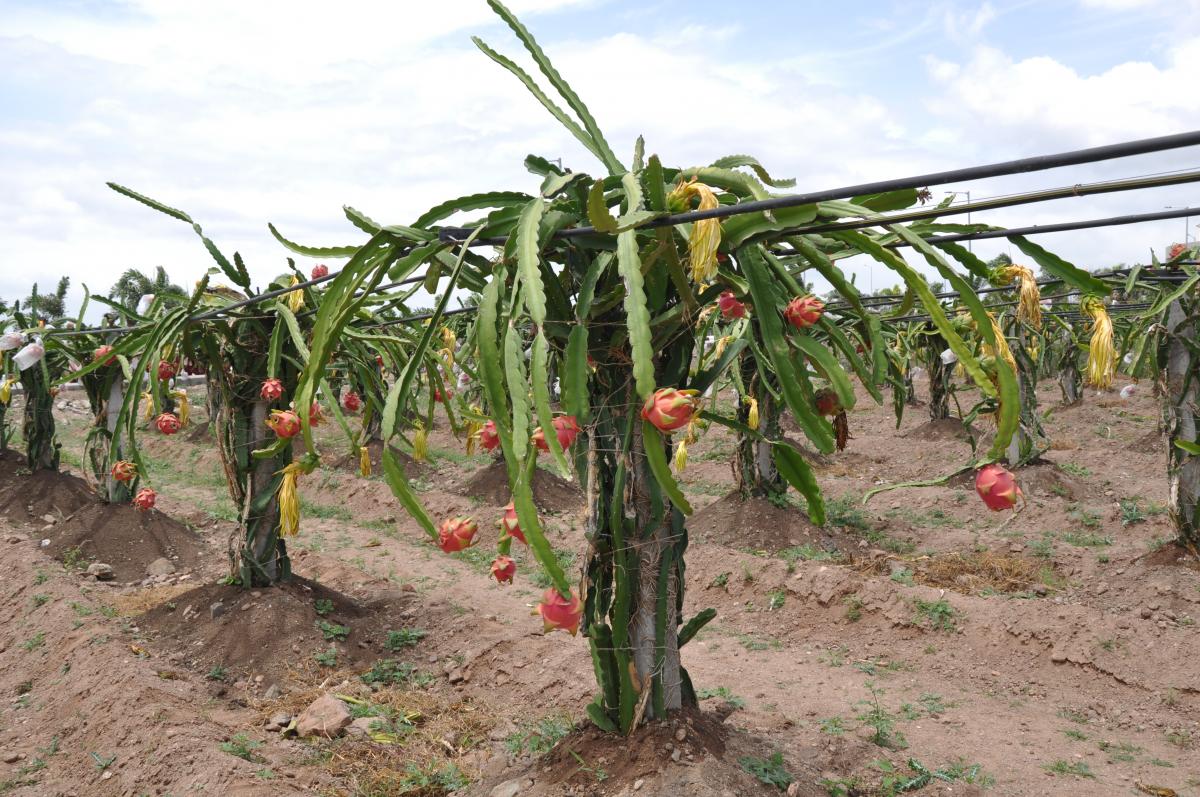
Types of Dragon Friut:
Botanically, dragon fruit is available in three variants viz., Red skin with white pulp (Hylocereus undatus), Red skin with red pulp (Hylocereus polyrhizus) and Yellow skin with white pulp ( Hylocereus megalanthus )
Importance:
Dragon fruit contains 70-80 % pulp which is the only edible part. It has multiple therapist uses as it prevents diabetes, colon cancer, and neutralizes toxic substances such as heavy metals, reduce cholesterol and high blood pressure. It is rich in vitamin C, antioxidants, fibres, phosphorus and calcium. It has high mineral content with TSS of 15-18o brix. It can be processed to range of industrial products such as juice, jam, syrup, ice cream, yogurt, jelly, preserve, candy and pastries. The red and pink pulp of dragon fruit is used for extraction of natural colours. Used as fruit salad and flower buds of dragon fruit are used to make soups.
Economics:
Dragon fruit as a money-spinning business with an initial investment of Rs 6.0-7.5 lakhs per ha. As the crop doesn’t require intensive management/ intercultural operations and also fetching retail price of Rs.150-250 in the nearby city markets farmers generating income of Rs 3-4 lakhs per year per ha during second and third year and Rs. 6-7 lakhs from 4th year onwards. This will not only bring large unutilized area of degraded lands of Deccan region under use but also improve the socio-economical status of farmers.
2. SORF: A Multi-purpose Machine for Ratoon Sugarcane
The Stubble shaver, Off-bar, Root pruner cum Fertilizer drill (SORF) machine up-graded by the National Institute of Abiotic Stress Management (NIASM), Baramati, has the potential to enhance the of the cane productivity and farmers portability, in addition to improving soil health and reducing emission of GHGs and environmental pollution, would bring livelihood security and prosperity to millions of sugarcane growers and sugarcane based industries.
Preamble
Sugarcane being a major cash crop plays an important role in Indian economy. In India, it is cultivated over an area of 5.0 million hectare with average productivity of about 70 tonnes per hectare. Almost 50 million sugarcane growers and their relations have dependence on sugar industry for their livelihood security. To meet the sugar demands of the country, the major targets should be to enhance its productivity especially the ratoon crop since the latter occupies around half of the sugarcane area but its yields 20–25 % less than the main crop. Higher mortality of tillers, lower nutrient-use efficiency and trash burning are the major constraints in achieving the higher production in ratoon crop. Therefore, to address these issues a machine developed by ICAR-Indian Institute of Sugarcane Research, Lucknow has been upgraded and nicknamed as “SORF”.
Important Features of SORF Machine:
The SORF Machine is suitable to perform four major operations in a single run which are as follows:
- Placement of fertilizers: A fertilizer drill attachment is utilized for band placement of fertilizer near the root zone of ratoon sugarcane while retaining the trash at the surface.
- Stubble shaving: Un-even stubbles which are left in the field after manual harvesting of sugarcane are cut very sharply at a uniform height close to the soil surface with a stubble shaver.
- Off-barring: Adjustable vertical off-barring discs cut the raised bed partially from outer sides and spread the cut soil over the chopped trash to accelerate its decomposition.
- Root pruning: The side older roots of ratoon sugarcane are pruned to stimulate in fresh root growth. The slush of newly developed roots promotes the uptake of water and nutrients for boosting initial growth of ratoon sugarcane.
Impact of SORF Machine:
With the use of SORF machine, ratoon cane yield improved by 10-38% while net profit of farmers improved by Rs. 27,000 to 50,000 per hectare. Similarly, in the era of water scarcity and higher input costs, 6-21% irrigation water and 20-25 % fertilizers could be saved with the use of SORF machine. This machine can perform the ratoon management operations under surface trash retained field conditions, thus trash burning which creates environmental pollution could be avoided. In-situ retention of trash in the field sequestered the carbon and improved the soil health in long run. Band placement of fertilizer-N not only improved the NUE (13 %) but also reduced the ammonia volatilization losses and N2O emission 15-20%, later is 310 times more potent green-house gas than the CO2.
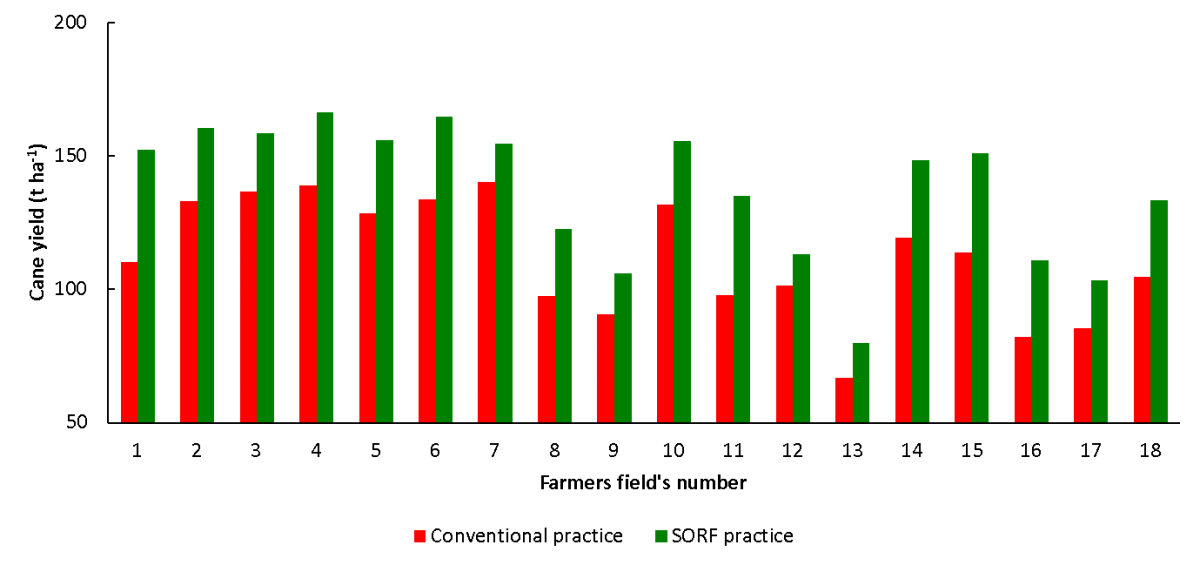
Considering the benefits of the SORF machine, it was imperative to reach the technology at sugarcane growers. Therefore, in order to make farmers aware about this technology, many on-farm demonstrations (> 50) were performed at farmers’ fields. The technology not only benefiting the sugarcane growers but also the machinery manufacturers and sugar industries.
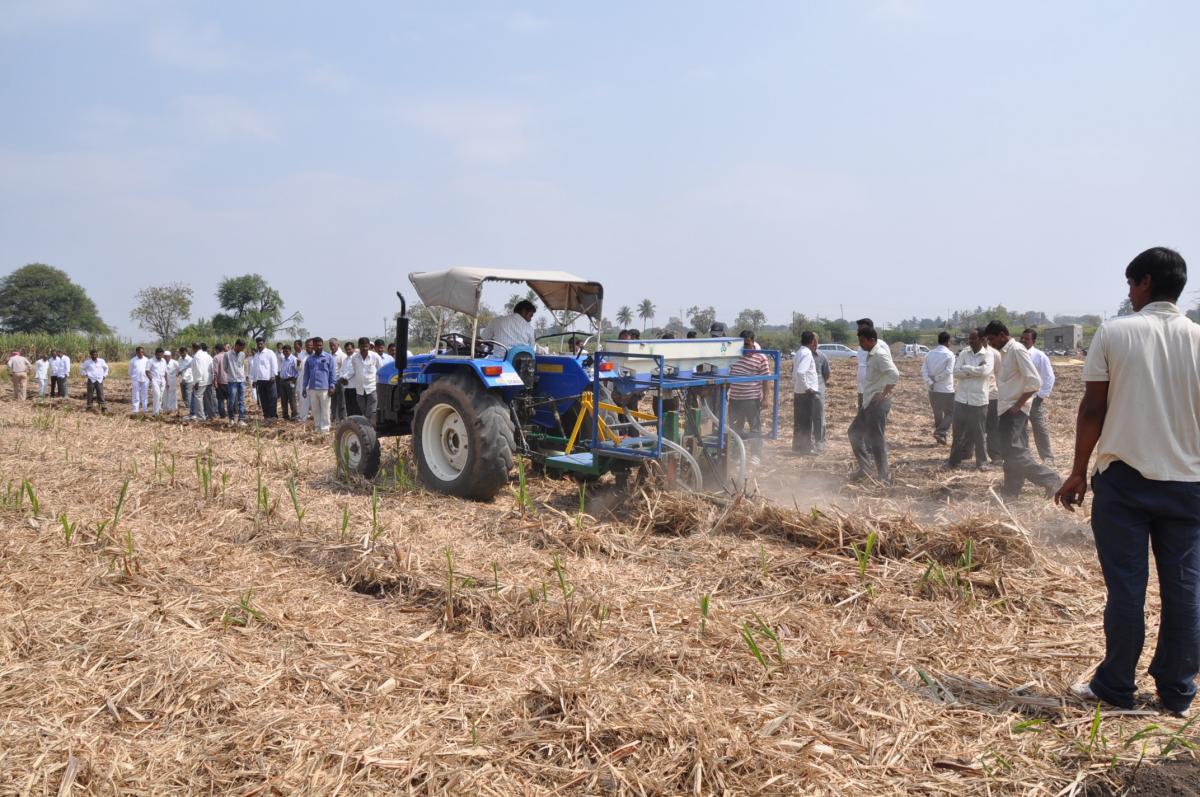
ITMC:
As per the ‘ICAR Guidelines for Intellectual Property Management and Technology Transfer/ Commercialization’ a Institute Technology Management Committee (ITMC; short title for Institute Intellectual Property Management and Technology Transfer/Commercialization Committee, IIPM&TCC) has been constituted for addressing Intellectual Property (IP) related matters of the Institution as detailed in the ICAR Rules and Guidelines for Training, Consultancy, Contract Research and Contract Services, 1997.
Committee Members:
|
Dr. K Sammi Reddy, Director ICAR-NIASM |
Chairman |
|
Dr. SS Pawar, Senior Scientist |
Member |
|
Dr. Mukesh Bhendarkar, Scientist |
Member |
|
Dr. Aliza Pradhan, Scientist |
Member |
|
Dr. AK Singh, Officer Incharge, ITMU Cell |
Member Secretary |
For Further Information Contact Details:
The Director
ICAR-National Institute of Abiotic Stress Management,
Malegaon Kh, Baramati-413 115, Pune
Phone: 02112-258000
Email: director.niasm@icar.org.in
Dr AK Singh
Memeber Secretary, ITMC
ICAR-National Institute of Abiotic Stress Management,
Malegaon Kh, Baramati-413 115, Pune
Phone: 02112-258000
Email: itmu.niasm@icar.gov.in


